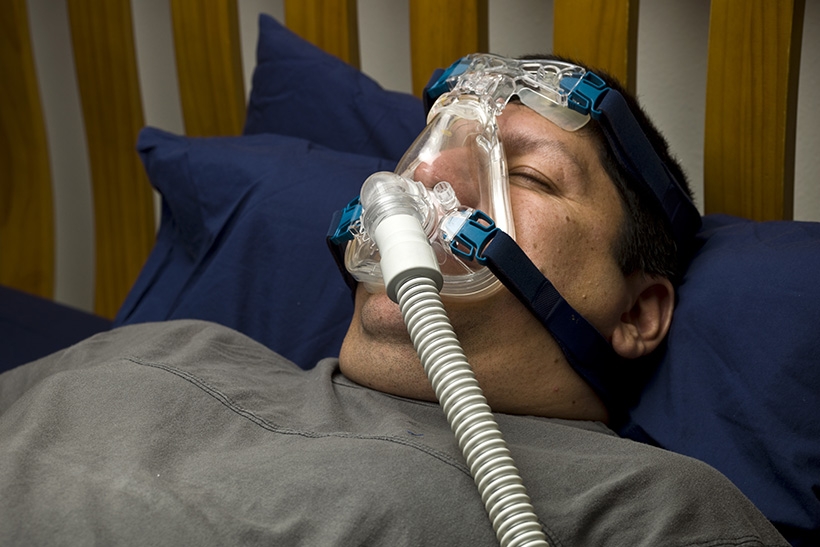Millions of men and women suffer from sleep apnea in the U.S., making them far more likely to suffer from serious medical problems, such as heart disease, heart attack, stroke, depression, diabetes, and obesity. What’s worse, as many as 80 percent of those who have apnea haven’t been diagnosed, according to the Cleveland Clinic.
Also called obstructive sleep apnea or OSA, sleep apnea causes your breathing to be interrupted, sometimes hundreds of times a night. Each interruption can be very brief, and often, they’re not enough to cause complete wakefulness. Still, all those interruptions are enough to cause chronic oxygen deprivation to your brain, heart, and other organs. Over time, the risk of having a serious complication significantly increases.
Relieving apnea symptoms and risks
Fortunately, if you have sleep apnea, you also have options for reducing or relieving your symptoms, as well as the health risks that go hand-in-hand with sleep apnea. At Houston Sinus Surgery, we help patients find the option that works best for them. Some treatment options involve lifestyle changes, while others require medical intervention. Here are five to consider:
1. Stop smoking — and limit your alcohol intake.
Smoking can cause inflammation in your airway, and it also increases fluid retention in the upper respiratory system — both of which can interfere with normal respiration while you sleep. In fact, the Mayo Clinic reports that smokers are three times more likely to have sleep apnea than people who don’t smoke. Other studies show that if you drink more than one drink a day, your risk for apnea also increases, perhaps because alcohol interferes with the sleep cycle or causes your throat muscles to relax more than they normally would.
2. Lose weight.
When you’re overweight or obese, you're more likely to have excess fatty tissue around your neck and throat, and you're also likely to have narrower nasal passages — both of which can contribute to sleep apnea as well as other respiratory problems. Plus, fatty tissue in your throat can descend while you sleep, obstructing your airways and causing snoring. Research shows that even modest weight loss can help reduce apnea symptoms in many men and women who are very overweight.
3. Use a CPAP device.
CPAP stands for continuous positive airway pressure, and it’s a therapy that’s administered while you sleep. In CPAP, a mask delivers a steady and continual stream of air to help prevent your airway from collapsing. For many patients, CPAP can be very effective in reducing the snoring and gasping symptoms of apnea, but some patients find the mask uncomfortable, while others say the stream of air interferes with their sleep. BiPAP uses a similar approach as CPAP, but air flows at two different pressures — a stronger one when you inhale and a lower pressure when you exhale. Some patients who have difficulty adjusting to CPAP do well with BiPAP.
4. Try oral appliance therapy (OAT).
OAT uses a custom-made device that you wear in your mouth during sleep. The device is designed to gently shift your lower jaw forward to help keep your airway open. Since each device is custom-fitted for your mouth and jaw shape, OAT appliances can be surprisingly comfortable. The device design also helps prevent your tongue from interfering with your breathing.
5. Ask about surgical options.
Sometimes, lifestyle changes and appliances therapy like CPAP and OAT aren't enough to reduce or eliminate sleep apnea symptoms. When that's the case, surgery may be a viable and effective option. At Houston Sinus Surgery, Dr. Yeung offers three types of surgery that can help with sleep apnea:
- Uvuloplasty (also called uvulopalatopharyngoplasty or UPP) removes excess tissue at the back of your throat to keep the airway open.
- Tonsillectomy removes tonsils that are larger than normal. When tonsils are very large, they can interfere with breathing even when you’re awake.
- Septoplasty corrects problems with your septum, the cartilage “wall” between your nostrils. When the septum is crooked or “deviated,” it can make breathing difficult, and it can also cause snoring.
All three surgeries are performed on an outpatient basis, and all three are associated with rapid healing and recovery.
Put an end to your apnea symptoms
If you have sleep apnea, getting treatment as soon as possible is the best way to decrease your risks for serious complications. To learn how we can help you get the sleep apnea treatment you need, contact Houston Sinus Surgery or book an appointment online today.




